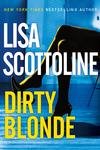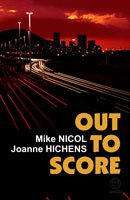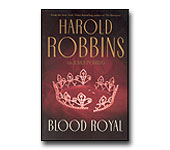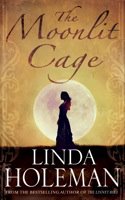Monday, January 15, 2007
December Reviews
I adore Philippa Gregory. Her research is always as flawless as her characters are flawed; her dialogue as crisp as her plots are tangled; and her setting as rich as court morality is poor. In The Boleyn Inheritance, we hear the different voices of three women: Jane Boleyn, middle-aged, the only survivor of the ambitious, ill-fated Boleyns; Anne of Cleves, a decent Dutch sort, imported as Queen but dethroned due to the King’s vanity; and Katherine Howard, the sweetly frivolous teen who ensnares him. This is truly “a novel drawn as tight as a lute string about a court ruled by the gallows”.
'Mercy' by Jodi Picoult (Hodder & Stoughton)
A popular Irish author (who will remain nameless) once wrote a heart-breaking novel about alcoholism – and a reviewer (whose name I don’t know, but if I did I would certainly mention it) didn’t read it and reviewed it as ‘forgettable froth’. I always think of this story when I read Jodi Picoult. Why? Well, she writes novels about men and women and children and relationships and love and pain, but she roots them in controversies and contentions so searingly topical that there’s nothing forgettable about them. Mercy is one such novel. If you like Picoult, it’s a must.
'Triptych' by Karin Slaughter (Century)
I hate to say it, but I’m going to. There’s no other way. This book is weird. Positioned as “a complex, multilayered story…[p]acked with body-bending switchbacks, searing psychological suspense and human emotions”, Triptych is certainly filled with tension – but it’s also filled with unpleasant surprises. For a start, I couldn’t keep track of the good guys and bad guys, I wasn’t crazy about either of the two obvious heroes and I found the fusion of personal drama with brutal homicide rather bizarre. Slaughter usually gets it right, but my advice to her on this opus is: please, pick a genre.
'White Guys' by Anthony Giardina (Random House)
This novel is rare, in that it features characters and settings so real and so colourful and so present as to make the reader believe that he or she is watching a film. Gritty, raw and honest, White Guys combines the desperately banished memories of Mystic River with the painful friendship of Sleepers. It tells the story of four friends from Winship, a shabby coastal town. Three marry and build respectable middle-class lives, while the fourth, Billy, is tough and violent and doomed. Tragedy follows and then, as Giardina planned when he wrote it, White Guys takes us “someplace unrecognizable”.
'The Innocent Man' by John Grisham (Century)
I was prepared to be disappointed by The Innocent Man, Grisham’s first work of non-fiction, because I expected something pallid – along the lines of the awful Bleachers. After all, Grisham has a superb fictional formula. Any deviations are disastrous. But this story surprised me. It was sufficiently interesting to masquerade as fiction, sufficiently bizarre to be unputdownable, sufficiently well-written to be typical Grisham, and superbly researched. My only regret is that The Innocent Man falls victim to the same malady as so many other works of true crime: too many characters. In fiction, you have the license to keep it simpler.
'Pocket Superdate' by Tracey Cox (Dorling Kindersley)
I understand that Tracey Cox is an international expert on all things sexy – from flirting to quickies; body language to dating. I understand that she’s a psychologist and best-selling author, so she’s no shrinking violet. And I acknowledge that, since she’s rather pretty, her techniques have probably worked for her in the past. But her book annoyed me. While it’s great as a guide to reading people in any context, I object in principle to a chapter on how to best position your feet so as to indicate, or pick up on, romantic interest. Serving suggestion: fun reading for teenage girls.
www.tiffanymarkman.co.za
'Cold Moon' (Jeffery Deaver)
 Deaver’s great. His novels are always a little heavy, and his forensic and geographical descriptions tend to be long and self-indulgent, but the sheer quality of his writing and his sink-your-teeth-in storylines typically transform those quirks into positives. He’s also the king of the
Deaver’s great. His novels are always a little heavy, and his forensic and geographical descriptions tend to be long and self-indulgent, but the sheer quality of his writing and his sink-your-teeth-in storylines typically transform those quirks into positives. He’s also the king of the For me, Deaver’s greatest talent is creating strong, memorable characters. The cynical and brilliant paraplegic, Lincoln Rhyme. Amelia Sachs, the speed freak, who is constantly chewing her nails and pulling out strands of her hair. The splendidly dressed decoy cop, Fred Dellray. And those are just the good guys.
In The Cold Moon, Deaver writes it a little more complicated than usual, and gives us a lot more insight into the personalities at work. There are twists and turns, surprises and suspense, homicide and human drama – and all the while, the Watchmaker, a sadistic serial killer obsessed with time, is leading Rhyme’s team into a merry maze of murder.
'The Husband' (Dean Koontz)
 I have a confession to make: I despised Dean Koontz. In fact, his Strange Highways a few years ago was so awful as to warrant banishment from my shelf. And then I picked up a book called Life Expectancy, without looking at the cover, and I adored it. Guess what? Dean Koontz.
I have a confession to make: I despised Dean Koontz. In fact, his Strange Highways a few years ago was so awful as to warrant banishment from my shelf. And then I picked up a book called Life Expectancy, without looking at the cover, and I adored it. Guess what? Dean Koontz.So I’ve been a secret Koontz fan in the recent past. Forever Odd. Velocity. The Face. All great, gripping novels. All pleasant surprises. I grabbed The Husband, Koontz’s ‘relentless new thriller’, and I expected much of the same.
It was not to be. Too complex, too complicated and too full of cheap coincidence, The Husband simply doesn’t live up to the promise on its cover: “So, we have your wife. You get her back for 2 million cash.” “Man, you aren’t listening. I’m a gardener.” In fact, I couldn’t even follow the storyline. And that’s a minimum
www.tiffanymarkman.co.za
'Green-Eyed Thieves' (Imraan Coovadia)
 The jacket of Imraan Coovadia’s Green-Eyed Thieves promises that it ‘offers a pleasure that may well be greater than the illicit joys of the brothers’ lives – the bliss of language’. I couldn’t agree more.
The jacket of Imraan Coovadia’s Green-Eyed Thieves promises that it ‘offers a pleasure that may well be greater than the illicit joys of the brothers’ lives – the bliss of language’. I couldn’t agree more.Firoze and Ashraf Peer, the novel’s twin protagonists, have the potential to become literary heroes – characters created so compellingly that their lives and evils and triumphs reach well beyond the vehicles that house them.
You know the kind I mean: Hannibal Lecter. Dr Evil. Captain Jack Sparrow. The Yebo Gogo guys and Mo the Meerkat, from Vodacom. Bigger than their books, better than their movies and often brighter than their brands.
The crooked Peer brothers who wreak havoc from
Green-Eyed Thieves speaks of inspired crime and brotherly betrayal; philosophy and family business – even introducing cameos for worthies like Mohammed Atta (of 9/11 fame) and President
‘Wicked’ (Jilly Cooper)
 Novels about schools are huge at the moment, with van de Ruit’s Spud a best-bestseller and Harris’s Gentlemen & Players an unexpectedly non-culinary delight.
Novels about schools are huge at the moment, with van de Ruit’s Spud a best-bestseller and Harris’s Gentlemen & Players an unexpectedly non-culinary delight. Jilly Cooper’s Wicked, positioned as ‘A Tale of Two Schools’, is a heavily Anglicised version of the two. It brings together masters and mistresses, vested interests and vendettas, pupils and passions, and introduces a large cast of Cooper-characters who are, put simply, raving mad.
Some we’ve met before: Rupert Campbell-Black, ‘as bloody-minded as he is beautiful’; Hermione Harefield, a ‘seriously tiresome’ classical diva; and Cosmo Rannaldini, ‘warlord’ and teenage psychopath. Others are entirely new, and wonderful.
They come together on opposite sides of the quest to close troublesome Larkminster Comprehensive, and all sorts of delicious chaos, sticky controversy and dangerous love ensues.
Cooper’s getting better with age – and in her contemporary books, there are fewer horses than people, which is always nice. I’d even go so far as to suggest that Wicked, packed with eccentric personalities, bizarre events and crazy couplings, is her best novel yet.
www.tiffanymarkman.co.za
Sunday, September 03, 2006
'My Father’s Orchid ' (Rayda Jacobs)
 Rayda Jacobs’ writing has a gloriously filmic quality. In My Father’s Orchid, we see the metal window frames and unplastered walls on Calendula Road in Bridgetown, smell the cabbage bredie and mince frikkadels, taste the slap chips and Lunch Bars.
Rayda Jacobs’ writing has a gloriously filmic quality. In My Father’s Orchid, we see the metal window frames and unplastered walls on Calendula Road in Bridgetown, smell the cabbage bredie and mince frikkadels, taste the slap chips and Lunch Bars.We hear Uncle James’s voice loud and slurry on the microphone singing Frank Sinatra’s ‘My Way’ – and experience some of the most intimate idiosyncrasies of life in the Cape Flats.
www.tiffanymarkman.co.za
Wednesday, August 02, 2006
'The Hard Way' (Lee Child)
 A cup of tea. A hot bath. A piece of chocolate cake. You know, things that are consistently good. Not ground-breaking. Not jaw-dropping. Just comfortable, reliable and deeply satisfying.
A cup of tea. A hot bath. A piece of chocolate cake. You know, things that are consistently good. Not ground-breaking. Not jaw-dropping. Just comfortable, reliable and deeply satisfying.If you’re not, but you appreciate the escapist American thriller, start with The Hard Way – you’ll be a Reacher-phile soon enough.
www.tiffanymarkman.co.za
‘The Waking’ (TM Jenkins)
 I’m not a fan of science fiction. I’m sceptical of novels set in the not-too-distant future, and more sceptical of novels set in the distant future. When I saw that The Waking, a medical thriller, was partly set in ‘
I’m not a fan of science fiction. I’m sceptical of novels set in the not-too-distant future, and more sceptical of novels set in the distant future. When I saw that The Waking, a medical thriller, was partly set in ‘But I’m glad I persevered, because this book is riveting – especially for a sceptic. Not only intelligent, challenging and highly original, TM Jenkins’ debut novel is also an utter page-turner.
www.tiffanymarkman.co.za
Thursday, June 22, 2006
'The Martha Rules' (Martha Stewart)
 I must admit to being extremely sceptical about Martha Stewart’s The Martha Rules: 10 Essentials for Achieving Success as you Start, Build or Manage a Business.
I must admit to being extremely sceptical about Martha Stewart’s The Martha Rules: 10 Essentials for Achieving Success as you Start, Build or Manage a Business.What could this woman, fresh out of a federal prison and famous for apron strings that are stylishly tied to the kitchen sink, possibly know about dog-eat-dog business? Silly, short-sighted me.
I was hooked from page four, where Martha explains that “[i]n the freelance world, you start every day at zero”, and the insights got better from there.
The Martha Rules offers 10 must-haves for entrepreneurial success, from the obvious ones like passion and an innovative idea, to the less self-evident ‘Teach so you can learn’ and ‘Make it beautiful’.
Along the way, the book also explains vision statements, encourages quality service, advocates superb personnel, advances promotional techniques and unpacks calculated risk-taking; each chapter peppered with celeb anecdotes, case studies and Martha-isms like “The journey begins in the mirror”.
I wouldn’t recommend The Martha Rules for hard-nosed businessmen keen on Robert Kiyosaki-style wisdom, but if you’re an ‘entrepreneuse’ – a female fire-starter – who’d like a solid grounding in how to get your Big Idea off the ground, take Mama Martha as your mentor.
www.tiffanymarkman.co.za
'Dirty Blonde' (Lisa Scottoline)
 Anything set in a courtroom and I’m an easy target. Particularly if the protagonist sits atop the dias and offers witty insights into what goes on behind closed courtroom doors.
Anything set in a courtroom and I’m an easy target. Particularly if the protagonist sits atop the dias and offers witty insights into what goes on behind closed courtroom doors.Lisa Scottoline’s Dirty Blonde heroine, Cate Fante, is such a protagonist. But she’s also a real person, with all of the petty insecurities, fragile relationships, big dilemmas and ugly secrets common to real people.
www.tiffanymarkman.co.za
'Where the Heart is' (Marita van der Vyver)
 Marita van der Vyver’s Where the Heart is is like a pretty cake tin filled with slices of life. And I can’t remember the last time I enjoyed a book (or indeed, a cake) this much.
Marita van der Vyver’s Where the Heart is is like a pretty cake tin filled with slices of life. And I can’t remember the last time I enjoyed a book (or indeed, a cake) this much.www.tiffanymarkman.co.za
Wednesday, May 10, 2006
'The Gypsy Madonna' (Santa Montefiore)
 The Gypsy Madonna is Chocolat meets Chateau Ella meets The Property of a Lady.
The Gypsy Madonna is Chocolat meets Chateau Ella meets The Property of a Lady.Santa Montefiore’s sixth novel gives us Mischa – six years old, clever, shy, and cruelly sidelined by his insular
Hiding behind ferns, in doorways and under tables, Mischa spies on and befriends the colourful guests at the chateau in which Maman works after the war. The women adore him but he never says a word, until the dashing Coyote arrives to transform the lives of mother and son.
Then, The Gypsy Madonna takes another turn entirely: into Mischa’s adult life. Into intrigue and heirlooms, secrets and memories, tragedy and awakening. And the author unveils the Titian masterpiece that is the novel’s provenance.
This is a simply glorious book. But beware: the back cover blurb does it absolutely no justice.
www.tiffanymarkman.co.za
Wednesday, May 03, 2006
'The Boy in the Striped Pyjamas' (John Boyne)
 The inside sleeve of John Boyne’s The Boy in the Striped Pyjamas reads thus: “Usually we give some clues about the book on the jacket, but in this case we think that would spoil the reading of the book. We think it is important that you start to read without knowing what it is about.”
The inside sleeve of John Boyne’s The Boy in the Striped Pyjamas reads thus: “Usually we give some clues about the book on the jacket, but in this case we think that would spoil the reading of the book. We think it is important that you start to read without knowing what it is about.”Ever seen such a blurb? Intrigued, I couldn’t help but grab the little book. And as soon as I started to read it, it knocked my literary socks off. I can’t tell you what it’s about, though, because that would ruin everything.
So let me say this: The Boy in the Striped Pyjamas has been short-listed for the Ottakar's Children's Book Prize. It is deserving of this and other accolades, for it is superb, but it isn’t a children’s book.
The Boy in the Striped Pyjamas is a fable, along the lines of Antoine de St Exupery's life-changing The Little Prince – and just as good. Try not to go another day without reading it.
www.tiffanymarkman.co.za
'Out to Score' (Mike Nicol & Joanne Hichens)
 We’ve been deprived for too long – devouring novels that meander down the Sunset Strip; that cower in Central Park. We’ve consumed local colour not our own.
We’ve been deprived for too long – devouring novels that meander down the Sunset Strip; that cower in Central Park. We’ve consumed local colour not our own.But Out to Score, the gritty collaboration by Mike Nicol and Joanne Hichens, gives us Cape Town. Real and ugly and familiar and breathtaking.
Nicol says that Cape Town has “become a character… because [it] has reached its puberty, and because [it] is the most complex city in the country… given to such emotional trauma…and to such dangerous beauty”.
Setting notwithstanding, Out to Score is a solid crime thriller with insights into perlemoen poaching (and its sharks, above and below sea-level).
Although I found the plot threads tricky to follow and the bad guys hard to spot, the story is ably held together by protagonists Mullet and Vincent: tongue-in-cheek stereotypes made real by their superb dialogue.
Buy it. You'll discover what a treat it is to read "the Green Point mile" and "a block past Giovanni's", and to know what the author sees.
www.tiffanymarkman.co.za
Friday, February 24, 2006
'Blood Royal' (Harold Robbins)
 The premise seemed so bizarre that I couldn’t help myself: a novel, inspired by the tempestuous life of Princess Diana, that relates Di’s story verbatim (stair-case, bulimia, Camilla) and culminates in her shooting Prince Charles? Was this a joke?
The premise seemed so bizarre that I couldn’t help myself: a novel, inspired by the tempestuous life of Princess Diana, that relates Di’s story verbatim (stair-case, bulimia, Camilla) and culminates in her shooting Prince Charles? Was this a joke?Afraid not. Harold Robbins – deceased since 1997 – has collaborated post-humously with Junius Podrug to produce a quasi-true tale of love, infidelity and revenge. Their resulting Blood Royal is sleazy-cheese-meets-royal-bio-meets-legal-thriller, with lots of gratuitous sex.
But here’s a plot synopsis; you decide. The philandering Charles torments Diana until she can take no more. She kills him and, charged with murder, recruits Marlowe James: defense sensation, media firebrand, femme fatale. In the case of Regina v Princess of Wales, Marlowe brings her fail-safe ‘abuse defense’ into battle against the Crown.
Intriguing, yes, but I couldn’t suspend my disbelief enough to get all the way through it. So let me say this: If you enjoy Jackie Collins and you’re no purist, Blood Royal may just make you salivate.
www.tiffanymarkman.co.za
'The Moonlit Cage' (Linda Holeman)
 Chadari-draped Muslims are to current fiction what ornamental geishas were to 90s novels and, in a post-Taliban literary arena, Afghani is the flavour of the moment.
Chadari-draped Muslims are to current fiction what ornamental geishas were to 90s novels and, in a post-Taliban literary arena, Afghani is the flavour of the moment.From The Bookseller of Kabul to The Kite Runner, readers are walking Kabul’s streets, exploring Jalalabad’s markets and climbing the Hindu Kush.
In The Moonlit Cage, Linda Holeman gives us Darya, a young Afghani. Too independent for her own good and too ‘wicked’ for her 1850s village, she is cursed by her father’s wife, shunned by her frightened community and locked into a fraudulent, brutal marriage.
But when Darya flees to Victorian London to save her own life, she finds it as unforgiving as the stark landscape of her origin: “I was overcome with deep, painful grief for all of us, for our women’s lives filled with…never-ending loss, a need to be loved and yet having it slide away.”
The Moonlit Cage is not unusual in a genre packed with similar plots, but it is richly textured, magnificently written and filled with imaginative characters. I’d even read it again.
www.tiffanymarkman.co.za